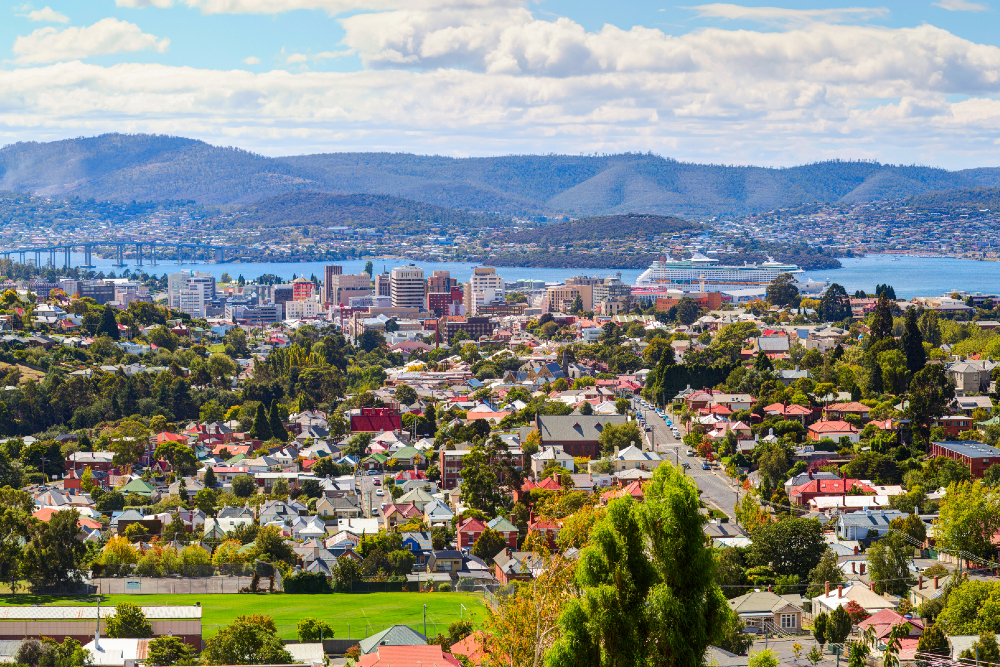Australian property market to reach milestone AU$9 trillion by end of 2021
Latest data from CoreLogic reveal that the national home values surged by 5.9 percent in the three months to July

In March, the Australian real estate market broke records when it hit the AUD8 trillion (USD5.8 trillion) mark. New data from CoreLogic uncovered that by end of this year, the market is poised to reach another trillion-dollar milestone, reported realestate.com.au.
Latest data shows that the rising home prices and the growing number of construction activities, propelled by the government’s ongoing support, will lead the total value of residential properties to reach AUD9 trillion by end of 2021.
Surge across the market
The current AUD8.8 trillion value of the residential property market has led to a 20 percent price hike in some of the country’s capital cities in the past year.
In Sydney, for instance, prices climbed 12 percent (AUD140,000) in the 12 months to March, with the average price reaching over AUD1.3 million.
The recent figures meant that the residential real estate sector now has a much higher value compared to Australian superannuation worth AUD3.1 trillion, Australian stock market worth AUD2.8 trillion, and commercial real estate market valued at AUD978 billion.
The study also discovered that over half of household wealth is in housing, with an overdue mortgage debt of AUD1.9 trillion.
CoreLogic Head of Research Eliza Owen said that the pandemic-induced low-interest rates have led to “some extraordinary figures in the housing market.”
Over the year, the organisation has documented around 600,000 residential property sales, the highest that they have witnessed since 2008.
“We’ve got more than half of household wealth made up of housing value,” shared Owen, revealing that the pending debts have reached around AUD1.9 trillion.
She added that cheap debt, low mortgage rates, and household savings due to pandemic restrictions — the trends that led to the boom in property prices in December of last year –will most likely be the same in the remaining months of the year.
In 2020, the rate of household savings soared 21 percent in comparison to a decade median of around 7.5 percent.
Slow and steady
National home values surged 5.9 percent in the three months to July, a decline from the seven percent increase in the three months to May.
Throughout Australia’s cities, Hobart led the hike in prices, amounting to an 8.2 percent increase. Sydney followed with a 7.7 percent jump.
The increase in prices is sustained by the country’s historically low mortgage rates and the immense number of buyers that exceed the available properties.
Therefore, the market continued to be an advantage for sellers, especially for the winning developers of the PropertyGuru Asia Property Awards (Australia), namely Balfour Group, Thirdi Group & Phoenix Property Investors, Weston Property Developments, TrueVine Global Pty Ltd, and DW Architects and Interiors, who, despite the global economic state, continue to construct high-quality developments that meet the changing demands of the users.
Owen also expects a drop in first home buyer participation even though the levels are currently well above average. Their research exposed a continuous decline in every state because of fewer incentives and affordability restraints.
On the other hand, investor participation soared in every state and territory in June, except for Queensland where investor lending was stunted by the 1.8 percent uprise in owner-occupier lending.
“We do expect that first homebuyer participation will continue to decline because not as many incentives are available to them now as they were through 2020,” said Owen.
More: Australian residential market breaks records as it surpasses AU$8.1 trillion mark
“Prices are becoming more out of reach for a lot of those buyers.”
She further said that the supply also contributes to the inflated prices, “not necessarily in the construction of new homes, but in people actually putting their properties up for sale.”
New stocks advertised currently sits at 25 percent below the historic average.
“At the same time that you’ve got a lot of demand in the market, there’s not a lot of new stock coming online for people to buy,” concluded Owen.
Know of any award-worthy homes, condos, flats, or other real estate projects in Australia? Nominate them for the PropertyGuru Asia Property Awards (Australia) 2021 on or before 17 September 2021. Simply visit asiapropertyawards.com/award/asia-property-awards-australia/ for more details.
Gynen Kyra Toriano, Digital Content Manager at PropertyGuru, wrote this article. For more information, email: [email protected].
Recommended
6 reasons Bekasi is rising as Greater Jakarta’s next hotspot
One of Greater Jakarta’s rising stars is prospering, thanks to ample recreation and a contingent of desirable housing projects
6 developments driving Asia’s green real estate shift
Developers are being incentivised to push a green agenda into daring new realms
The Philippines’ LIMA Estate drives sustainable industrial growth
LIMA Estate models a citywide vision that uplifts workers while appealing to climate-conscious employers
Malaysia property market rebounds with foreign interest and growth
The nation’s property market is stirring to life, fuelled by foreign buyers and major infrastructure drives







